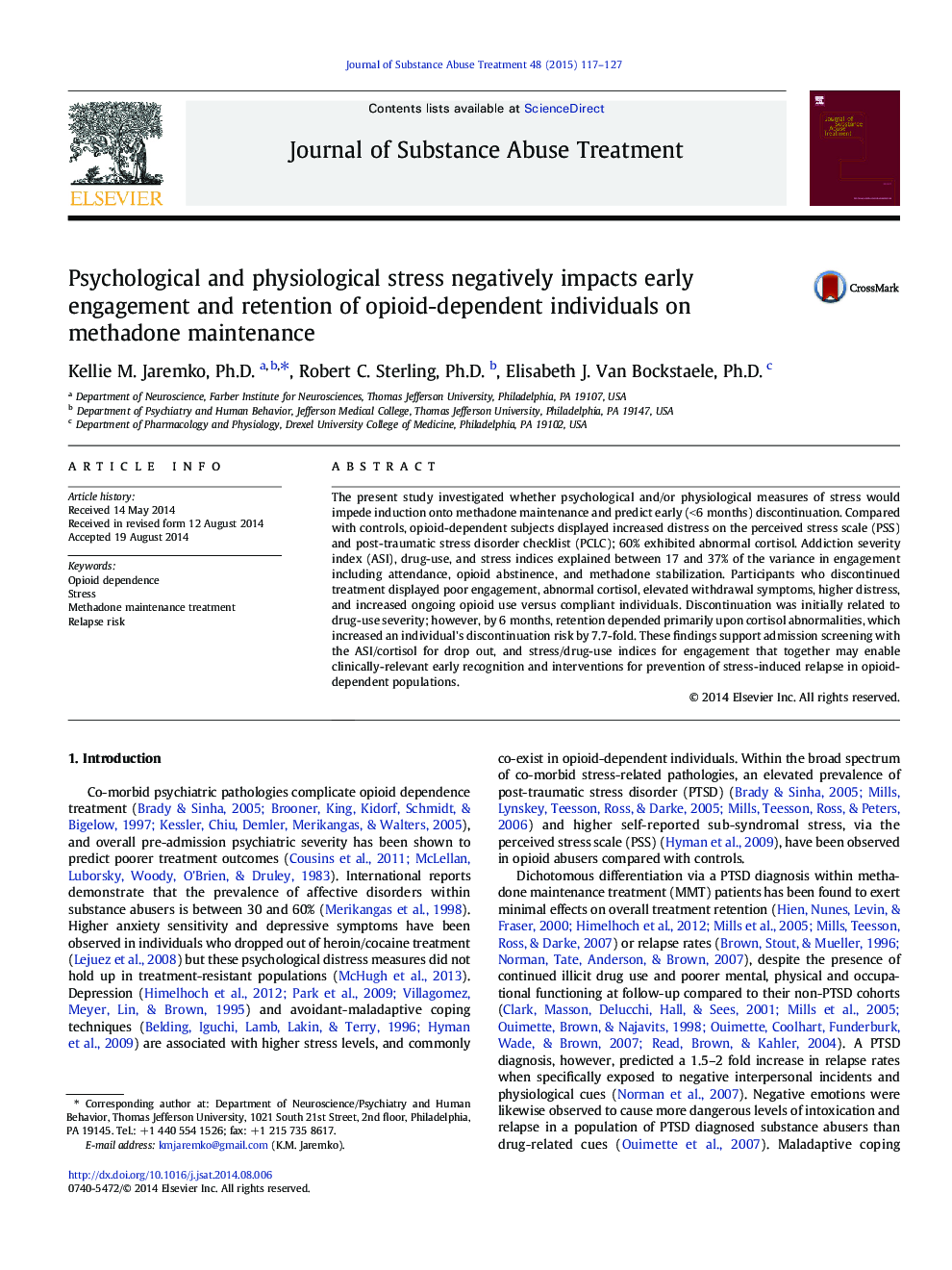| Article ID | Journal | Published Year | Pages | File Type |
|---|---|---|---|---|
| 10303065 | Journal of Substance Abuse Treatment | 2015 | 11 Pages |
Abstract
The present study investigated whether psychological and/or physiological measures of stress would impede induction onto methadone maintenance and predict early (<6Â months) discontinuation. Compared with controls, opioid-dependent subjects displayed increased distress on the perceived stress scale (PSS) and post-traumatic stress disorder checklist (PCLC); 60% exhibited abnormal cortisol. Addiction severity index (ASI), drug-use, and stress indices explained between 17 and 37% of the variance in engagement including attendance, opioid abstinence, and methadone stabilization. Participants who discontinued treatment displayed poor engagement, abnormal cortisol, elevated withdrawal symptoms, higher distress, and increased ongoing opioid use versus compliant individuals. Discontinuation was initially related to drug-use severity; however, by 6Â months, retention depended primarily upon cortisol abnormalities, which increased an individual's discontinuation risk by 7.7-fold. These findings support admission screening with the ASI/cortisol for drop out, and stress/drug-use indices for engagement that together may enable clinically-relevant early recognition and interventions for prevention of stress-induced relapse in opioid-dependent populations.
Related Topics
Life Sciences
Neuroscience
Biological Psychiatry
Authors
Kellie M. Ph.D., Robert C. Ph.D., Elisabeth J. Ph.D.,
